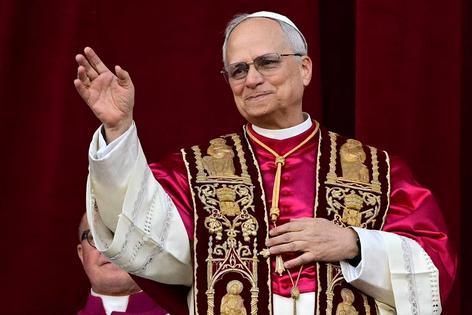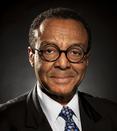Pope Leo XIV Seems Well Loved, But for How Long?
Once loyal Chicagoans got over the double shock of hearing that a local native, Cardinal Robert Francis Prevost, has been named the 267th pope, some critically important, locally familiar questions came up:
Which parish is he from?
Sox fan or Cubs fan?
And what bearing will his papacy have on the Great Pizza Schism, under which the local deep-dish faithful have suffered the odium of thin-crust New Yorkers?
No problem. Pope Leo XIV, as he will be known, is very Chicago.
He was born at Mercy Hospital in Chicago's Bronzeville neighborhood, making him the first American to ever be elected by the conclave in the church’s 2,000 year history.
He was an altar boy at St. Mary of the Assumption Church on the South Side next to suburban Dolton, graduated from Villanova University and Catholic Theological Union In Chicago in 1982 and was ordained as a priest for the Order of Saint Augustine.
It also is worth noting that at least one researcher, Jari C. Honora, a noted genealogist and historian who has done research for the TV show “Finding Your Roots” with historian Henry Louis Gates Jr., says the pope is partially descended from Creole people of color, although family members say they have not identified as such in recent generations.
“It would be so fabulous to have someone who has some connection to our people, who give us the recognition we deserve,” Lolita Villavasso Cherrie, 79, a retired teacher, told the New York Times. “I hate to say it, but we feel, many of us, that our history was hidden from us.”
That would hardly be the first time such history has been “hidden” in our country’s racially turbulent past. In this internet age, many families, including mine, have uncovered mixed race ancestry they did not know about.
And Creoles are hardly new to the Chicago region, considering how the city's first non-Indian settler, trader Jean Baptiste Point du Sable, was Haitian Creole.
Yet, Pope Leo has not had to go back in history to find controversy.
Before his election as pope, he shared social media posts criticizing President Donald Trump and Vice President JD Vance for their immigration stance.
One now-famous post from Feb. 3 referred to an article in the National Catholic Reporter titled "JD Vance is wrong: Jesus doesn't ask us to rank our love for others."
Which brings us back to the question of why it took the Vatican so long to get around to selecting an American pope.
I understand how many were concerned that an American pope would have a tendency to dominate proceedings too much, whatever that might mean, although the power of the pope is such that excessive dominance challenges the imagination.
But the more I have learned about Robert Prevost, the more I am reminded of what people in a lot of Chicago neighborhoods call a “reg’lar guy.”
That’s the sort of jolly person the Cambridge dictionary defines as ”a normal man who is liked and trusted."
Pope Leo XIV sounds like a man who can be trusted, but he is also filling the shoes of a pontiff who was both widely loved and widely vilified for his perceived departure from traditional Catholic teaching on certain moral issues.
In carefully worded apostolic documents, Pope Francis softened the church's attitudes toward divorced and remarried Catholics, same-sex couples and the validity of other faiths in God's eyes. These positions, along with his personal modesty and steadfast advocacy for the poor and immigrants, endeared him to political progressives the world over but also inspired a significant conservative backlash, both within the church and without.
Among Francis' most vociferous critics were "traditionalist" American Catholics. Bishop Joseph Strickland of Tyler, Texas, was something of a figurehead of the backlash, noted for his MAGA-inflected vitriol (he once darkly alluded to the Vatican's "deep state"). Strickland was investigated and asked to resign. When he refused, he was removed by the Vatican's Dicastery for Bishops, led by then-Cardinal Robert Prevost.
Leo is a new pope, but he will face a host of old controversies. Some see him as Francis' heir, while others see signs of doctrinal conservatism. Many will project their own political preoccupations on him, but his preoccupation will be with serving the nearly 1.4 billion Catholics around the world.
At the moment, Leo seems to have the sympathy of the world behind him. We'll see how long that lasts.
========
(E-mail Clarence Page at clarence47page@gmail.com.)
©2025 Tribune Content Agency. Distributed by Tribune Content Agency, LLC.
(c) 2025 CLARENCE PAGE DISTRIBUTED BY TRIBUNE MEDIA SERVICES, INC.


























Comments